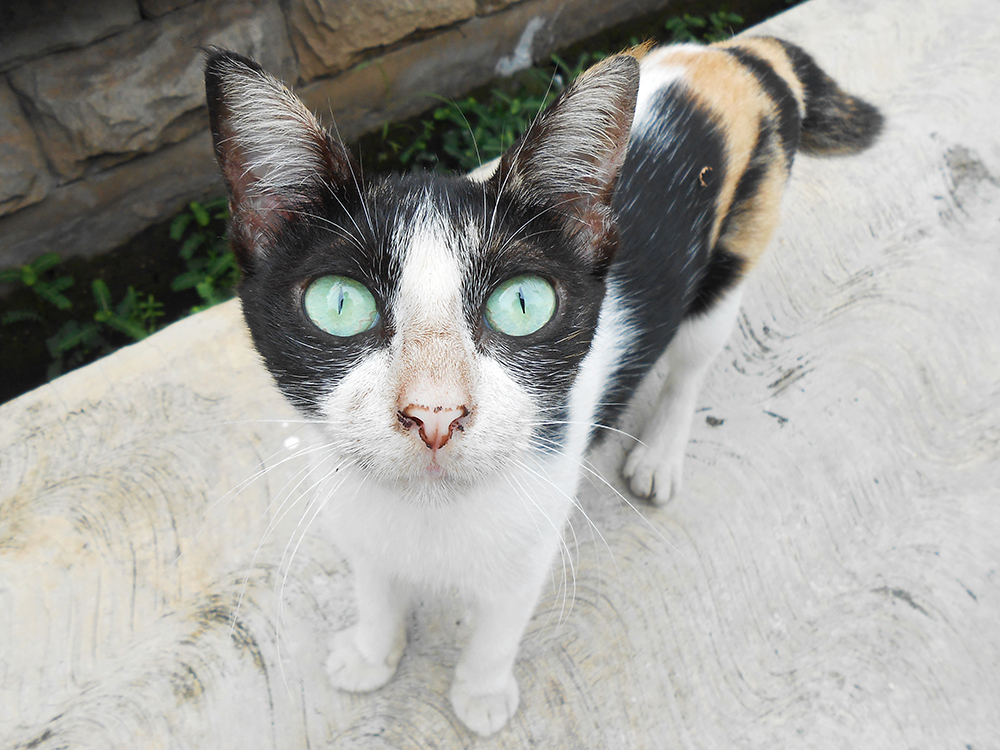
The information is current and up-to-date in accordance with the latest veterinarian research.
Learn more »
Even though it may be gross to think about, familiarizing yourself with a cat’s nasal discharge can help you take better care of them. The color of your cat’s boogers can alert you of potential infections and diseases.
Sometimes, your cat may have black boogers. In most cases, their nasal discharge will appear black or brown when it contains dried blood. Blood in the nasal passage often points to an underlying health issue that requires veterinary attention. So, it’s best to consult your vet if you notice black boogers in and around your cat’s nose.
The 5 Possible Reasons Your Cat Has Black Boogers
A cat’s nasal discharge usually looks transparent, but it can change colors and become more opaque if they get sick. Both environmental factors and internal health issues can affect the color of your cat’s nasal discharge. Here are some common reasons why your cat’s boogers may by black.
1. Respiratory Tract Disease
When a cat’s respiratory tract gets inflamed, it can cause black or brown boogers to form around their nose. Nasal discharge from respiratory tract disease is usually thick and yellow. However, it can have a red tinge with fresh blood or it may appear dark brown from older blood. Along with nasal discharge, cats with respiratory tract disease often have eye discharge and sneezing. They can have runny eyes and noses for several weeks to months.
Image Credit: megaflopp, Shutterstock
2. Nose Bleeds
Dark nasal discharge is often caused by blood in the nose, which is known as epistaxis. There are many different causes for epistaxis and the seriousness of the condition varies from mild to severe. It’s most common for epistaxis to be a sign of an infection or trauma. However, it can also be caused by liver failure, feline leukemia virus infection, drug reactions, fungal diseases, hemophilia, and rodenticide poisoning.
3. External Pollutants
Sometimes, black boogers may form around your cat’s nose if they’re exposed to external pollutants. This can occur in urban cities where there’s more smoke, gas, and other airborne particles. It’s also more common for outdoor cats than indoor cats to have darker nasal discharge because they have more exposure to outdoor air and dirt.
Image Credit: ddisq, Shutterstock
4. Rhinitis
Rhinitis refers to when the mucous membranes in the nose become inflamed. Most cases of rhinitis are caused by a viral infection, but it can also be a sign of allergies. The nasal discharge from rhinitis is usually clear, but it can become thicker and more opaque if a secondary bacterial infection occurs. Other signs of rhinitis include sneezing, pawing at the face, labored inhalation, and snoring.
5. Nasal Trauma
A significant injury to the nose or nasal cavity can cause bleeding. Dried blood can gather within the nose and look like black boogers when they fall out. Most cases of nasal trauma will be apparent. An injured nose usually looks swollen, bruised, or discolored. Cats can also experience difficulty breathing, so it’s important for your cat to receive medical attention as soon as possible.
Image Credit: maleblackdog, Shutterstock
What to Do if Your Cat Has Black Boogers
If your cat’s boogers look like soot or ash, it’s possible that they’ve been exposed to air pollutants. You can usually just wipe their noses clean and remove any bigger particles that are clinging to the outer parts of their nostrils.
If your cat’s boogers are dark brown and look more like dried blood, it’s best to get them to a vet for a checkup. Dried blood in the nasal cavity usually indicates an underlying medical condition that requires veterinary intervention and care. Make sure to take note of any other signs or unusual behaviors from your cat, as this information can be helpful for your vet’s diagnosis.
Since a variety of health issues can cause bloody noses, treatment plans will vary from case to case. Therefore, it’s important to consult your vet before treating your cat. Your vet can provide treatment options and prescribe medication that will help your cat feel better.
Image Credit: Sawet_Rawpix, Shutterstock
Conclusion
Overall, your cat’s boogers may turn black when there’s bleeding in their nasal passages. In some cases, their boogers may be black due to inhaling air pollutants. Causes of blood in the nasal passages will vary. So, it’s important for your cat to see a vet to get a proper diagnosis and ensure they receive the right treatment to help them get better.
Featured Image Credit: Firman Widyasmara, Shutterstock






